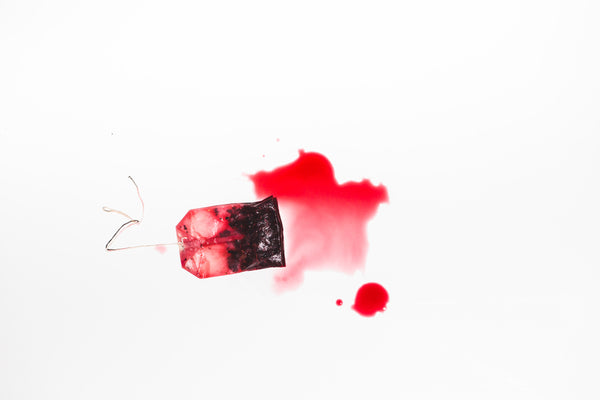Embracing Menstruation and Helping to Break the Period Taboo

Menstruation is still considered taboo in much of American society, and in many parts of the world, in a way that seems not only ridiculous but also confusing.
Women get periods. Period. They’re an essential part of the reproductive process by which all of us land on this planet. This is common knowledge. And yet many women are made to feel ashamed of their menstrual cycles, they are silenced on the subject.
Across the globe, girls are encouraged to stay silent about their periods, and most adult women are expected to keep things hush-hush. Even now, in my twenties, if I need to buy tampons, the cashier will always ask me if I want the box double bagged, as if I should be so embarrassed by my purchase. With subscription service this alleviates any such anxiety, but the taboo remains, and menstruation is meant to exist solely in the shadows.
To me, one of the most frustrating byproducts of the period stigma are the completely unusable crank machines relegated to dark corners in public bathrooms. Every time I see one of them I think to myself – do these things even work? They are completely out of touch with the modern woman’s needs. Have these even been restocked since 2000?
If you run out of products and you’re in a bind, your only other option is asking around for a tampon or pad, which is, of course, deemed completely inappropriate. You’re forced to whisper or pull a colleague into an empty office, all to ask for this totally normal item. The whole situation is made to be incredibly awkward and shameful, when there is no logical reason why it should be. It’s biology.
This perception of periods as taboo comes from a long history of menstruation being considered impure or unclean. Some of these beliefs are religious, some are cultural, some are taught, some intuited. In the 1980s studies were done that showed that nearly all girls in the USA believe they should not discuss periods with boys.
It was just deemed as incredibly inappropriate, and I think to an extent parents reinforced that. If menstruation wasn’t discussed openly in the home, how could it be discussed openly among friends? How could it be discussed embarrassingly with guys? Purposefully avoiding a topic will only help to make it seem more mysterious and uncomfortable.
I remember getting my first period. I was embarrassed, awkward, and uncomfortable. I certainly didn’t share the news with everyone around me. But some communities view a women’s first period as being a cause for celebration. While it feels commonplace here in the US to shun talk of our periods, various culture around the world treat menstruation with the honor and reverence that it deserves:
The Yurok is a tribe of Native Americans from northwest united states. Traditionally, periods were not viewed as being impure of embarrassing. Exactly the opposite, actually. Since the women of the tribe lived so close to each other – very often their cycles would sync such that the majority of the women would menstruate concurrently. During these period, women are removed from the community for a period of 10 days. It’s been suggested that women used this time to dedicate themselves to spirituality. This trope of removing women from society during menstruation is seen in many cultures that view menstruation negatively. But the Yurok women were removed from society so that they could spend their menstrual days with other menstruating women, performing rituals and delving into the spiritual.
In Southern Ghana they hold the view that a young women’s first menstruation has a happy (and quite public) affair. It’s a symbol of reaching adulthood, kind of like a sweet-16. The young woman is congratulated, and celebrated with special foods, music, and prayer. This marks her transition from girl to woman, and she is given elevated status because of it. (A bit unrelated but also interesting – this puberty rite, not marriage, was considered the requirement for determining legitimate pregnancies, after a woman’s puberty celebration, her pregnancies were socially acceptable, even if they were premarital).
Apache Indians also celebrate a girl’s first period. The ceremony, called the Sunrise Ceremony, takes place the summer following the girls’ first period. The girls of the community dance and run into the four directions, for four days and four nights, symbolizing the four stages of life. The girls undergo both spiritual and physical training for the ceremony, as it is led by a medicine man and tends to be a physically demanding four days. Menstruation, and its ensuing celebration, is meant to help young women connect with her heritage (in bringing women closer to the “White Painted Woman”) and signifies their entrance into womanhood.
Things have gotten better. A quick search of “period stigma” on Google showed that between 2015 and 2016, a period commercial finally showed blood (no teens in white jeans, thank you very much), a startup is helping women have sex on their periods, and Obama became the first president to discuss menstruation. And while I don’t think that we’ll soon be having hugely public and days long celebrations as those listed above, there is a way that we can contribute to the progress already made.
Maybe that involves being more open about menstruation with your younger sister. Maybe that means celebrating your daughter’s first period, so that she knows it’s nothing to be ashamed of. There are small things we can do to keep the dialogue open, and to incorporate a little bit of these old celebrations into our every day (or every month, rather!).
0 comments